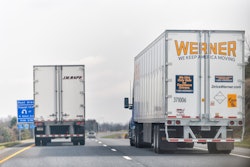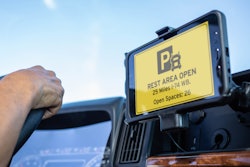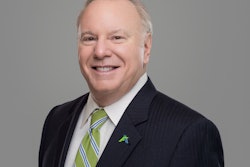Drivers with American Central Transport were under the impression that folks back at the office were part of an exclusive club with plenty of masks and gloves in the midst of a growing pandemic while they were getting left out in the cold.
ACT vice-president of operations, Brian Matthews, said he and other decision makers at the Missouri-based dry van carrier learned about their drivers’ angst through the WorkHound app, an anonymous reporting tool that drivers can use 24/7 to reveal their impressions, good and bad, on important work-related topics. That includes COVID-19, and during the onset of the pandemic, comments were pretty concerning.
“There was this mentality that everyone in the office was walking around with gloves and masks on and that they were just left to fend on their own and that wasn’t the case at all,” Matthews explained. “But we had to get that message out there so we worked to get that and as those things came in we’ve been very clear in communicating that we have gloves, we have masks, we have hand sanitizer for them. Not only that but we were reassuring them this whole time that we were taking additional measures to make sure the facilities that we do have are clean and sanitized multiple times a day.”
To better address the concerns of drivers and other employees, Matthews and ACT President Phil Wilt began sending out podcasts and fleetwide messages multiple times a week. Emphasis was also placed on stepping up communication efforts between the operations department and drivers.
Getting personal protective equipment (PPE) proved challenging for ACT from the start and, judging by initial comments on WorkHound, drivers were getting impatient.
“We just tried to counteract that by being honest and letting them know how we were struggling,” Matthews said.
A team was set aside to focus on sourcing PPE and drivers were notified as additional masks, gloves and sanitizer were secured. Still, Matthews said PPE can still be hard to come by, particularly as more companies require them for employees and those that visit their place of business.










